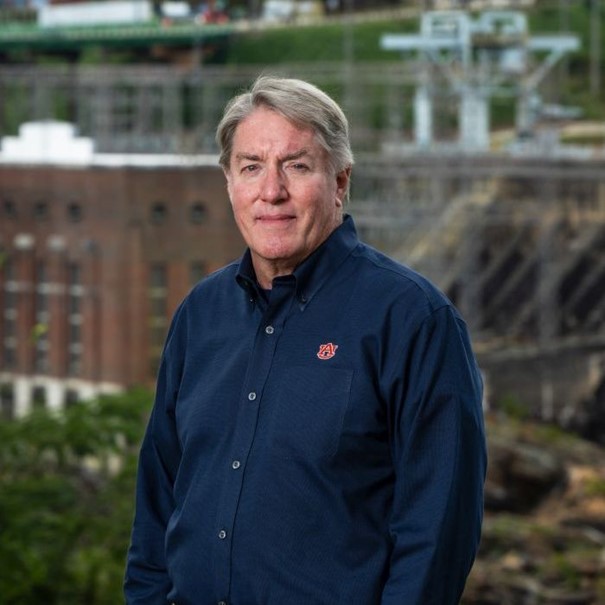Dear CEM, ET and other UT colleagues,
Following my own inspiring research visit to Auburn University from mid-April to mid-May this year, I am pleased to cordially invite you to attend a public talk by Prof. John Morris, University of Auburn, Alabama, United States – organized within the context of his Da Vinci Fellowship of the Engineering Technology Faculty – with the title:
“An introduction of Auburn University and Climate-Resilient Water Infrastructure in the United States”.
The talk will be on June 12, 2024, from 13h until 14h in the Horst building. After a short introduction (by myself, Joanne Vinke-de Kruijf, Civil Engineering & Management), Prof. Morris will deliver a 30-minutes talk that is followed by a Q&A session. Please join if your are interested learning more about climate and infrastructure challenges in the US and/or potential opportunities for collaboration.
Why this public talk? Following a successful collaboration between UT’s BMS Faculty and Auburn University circa 30 years ago, the University of Auburn reached out to UT colleagues with an eye on reviving collaboration with UT. Following two successful exploratory visits by Auburn University staff to UT in 2023, Prof. Morris (in collaboration with prof. Leentje Volker and Joanne Vinke-de Kruijf) was granted a Da Vinci Fellowship, which allows him to visit the UT now in June and once more in October / November 2024. With the support of this fellowship, we seek to further develop a collaborative partnership focusing on climate-resilient water infrastructure between Auburn University and the University of Twente. To promote climate-resilience, researchers at both Auburn and UT have a strong desire for expanding interdisciplinary collaboration to better integrate social sciences and engineering disciplines.
The goal of this exchange is to stimulate interdisciplinary collaboration and to further the development and cooperation of both a long-term (5-10 year) collaborative research agenda, as well as the development of a mechanism to allow the ongoing exchange of faculty and students between the two universities. We consider this promising as both UT and Auburn have a focus on providing solutions to society, as well as furthering the development of our collective knowledge base and academic contributions. The issues around infrastructure policy, resilience engineering, design, climate resilience, and community and stakeholder participation are important to both the Netherlands and the US., and shared knowledge can enhance mitigation, adaptation, and resilience for both nations, all within the context of a changing landscapes and changing socioeconomic systems.
Who is Prof. John C. Morris? Professor John C. Morris’ record of academic work spans more than thirty years, during which time he has built an international reputation for his work around the provision, funding, and implementation of water infrastructure in the US, and the use of collaboration to achieve environmental goals.
Since 2019, Prof. Morris is a full professor in the Department of Political Science at Auburn University. Prior to that time, Dr. Morris served as a faculty member at Old Dominion University from 2002-2019, and at Mississippi State University from 1994-2002. He received his Ph.D. in Public Policy and Administration from Auburn University in 1994. Dr. Morris’ academic qualifications are bolstered by several years of practitioner experience; he has also served as Research Coordinator at the Center for Governmental Services at Auburn University, and as a Research Associate with Policy Studies Associates, Inc., in Washington, DC. His research interests include environmental infrastructure, collaboration, public-private partnerships, water policy, federalism, and organization theory. Dr. Morris teaches courses in collaboration, public policy, organization theory, privatization, and policy evaluation in both the Master of Public Administration program and Ph.D. in public administration and public policy programs.
He has won several teaching awards over the course of his career. He also serves on the editorial boards of three journals, has served on the program committee for three national conferences, and is a member of several professional organizations and honoraries. He has also served as an expert panel member, board member, or advisor to US national or state panels and commissions related to water infrastructure, climate change, and public funding for infrastructure.


